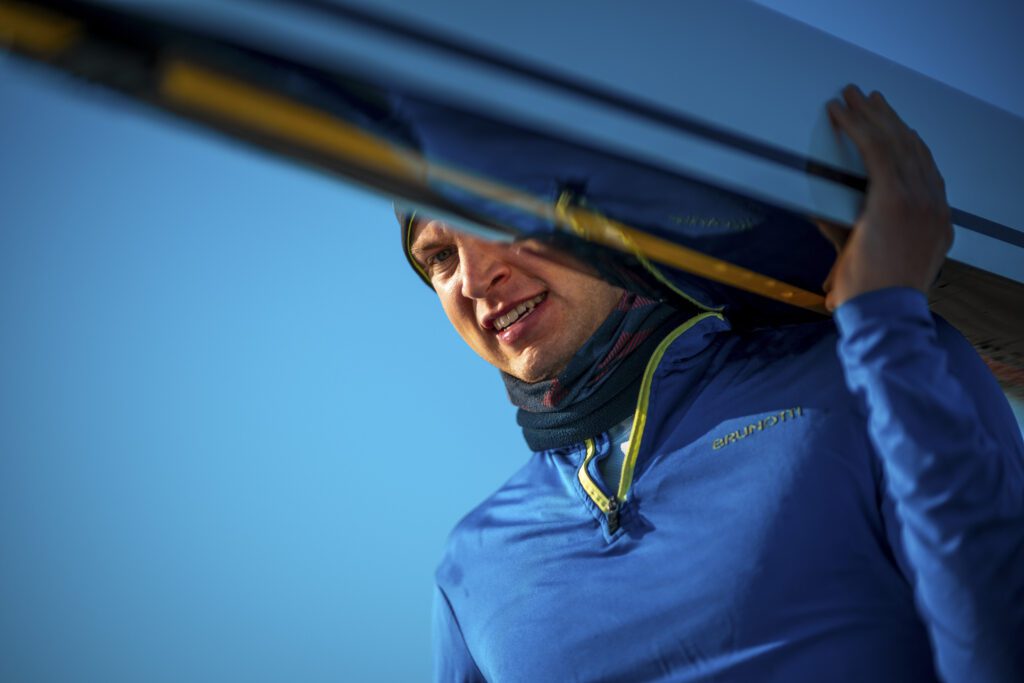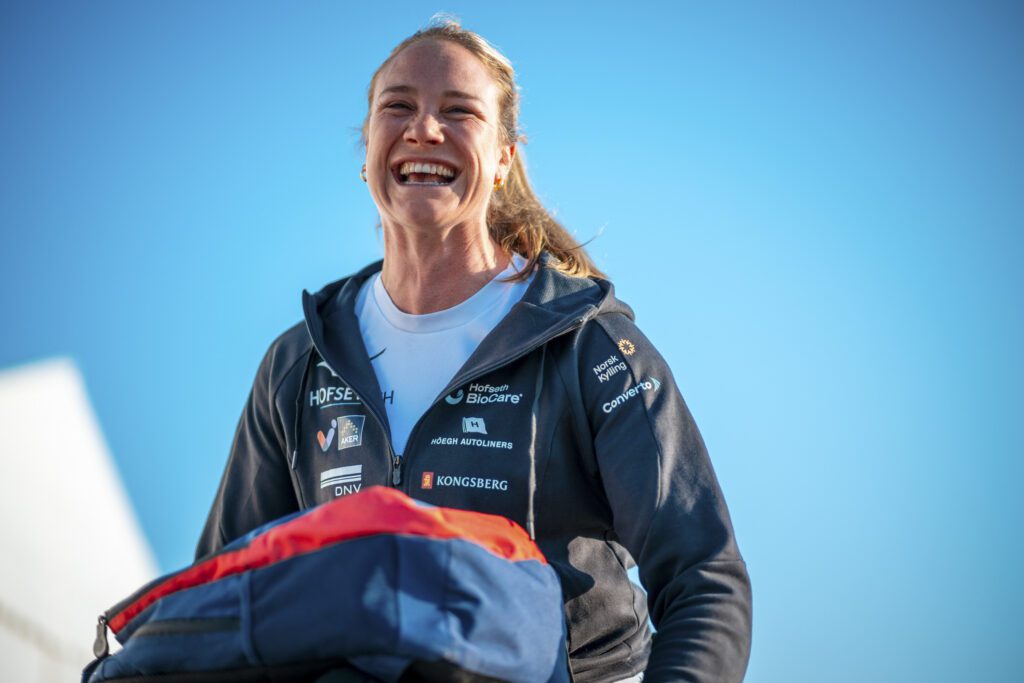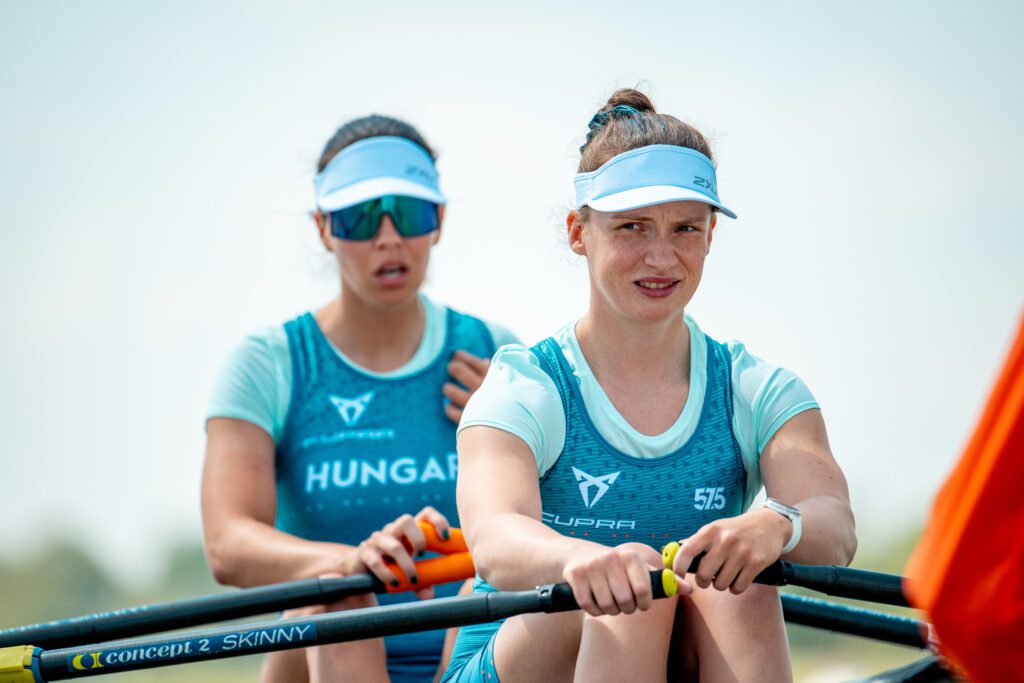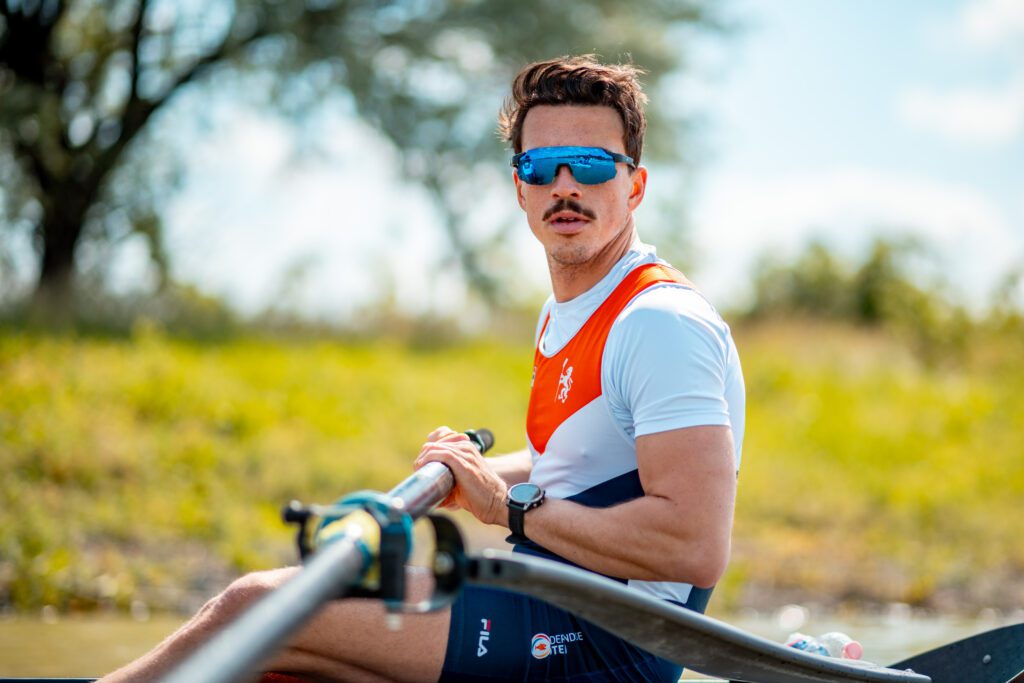The winter cobwebs were well and truly blown off the international season in Serbia at what was the first leg of the 2018 World Rowing Cup. Of course, many of the big guns such as USA, New Zealand and Australia didn’t come out to play, they typically wait for world cup II to make their season debuts, and even neighbouring Italy opted out. So what can we take away from this early-season tussle?
Perhaps the most obvious thing is that the Netherlands are back in business – and firing on all four cylinders. Not only did they achieve six gold medals, a tally only achieved previously at a world cup by GB, Germany, Australia and New Zealand, but also scooped both first and second place in the men’s and women’s fours. It demonstrates a remarkable depth of talent currently in the Dutch squad.
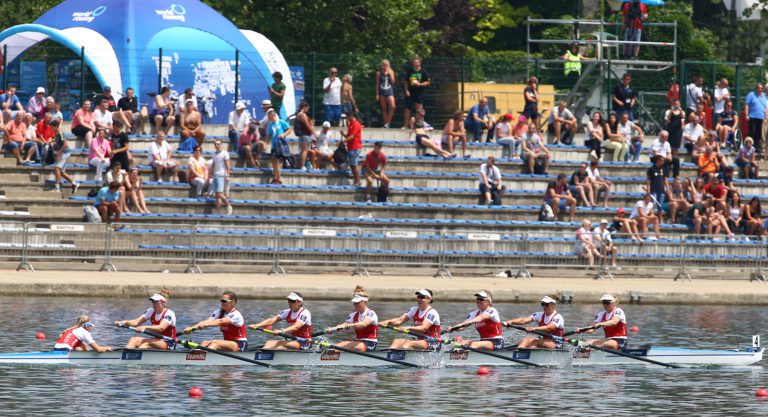
Photo Netherlands W8+ winning in Belgrade, Serbia
Credit World Rowing
The Dutch can only be cautiously optimistic. What we don’t know is what has been happening behind the scenes in the run-up to this event. Nobody wants to ‘peak’ at the start of the season and many nations treat world cup I much like a training row, doing little to taper their work-load in the lead up to the event. What will happen in Belarus, at the end of the summer, remains to be seen.
Looking to specific events, the top of the men’s and women’s singles remained unchanged from last season; the reigning world champions Jeanine Gmelin of Switzerland and Ondrej Synek of the Czech Republic won the women’s and men’s heavyweight singles here in Belgrade. There is a lot of talent still to return to the events, but both Gmelin and Synek look strong and fairly unassailable at this point. Returning straight to their respective top spots will have only helped their confidence as we approach the half-way point to Tokyo.
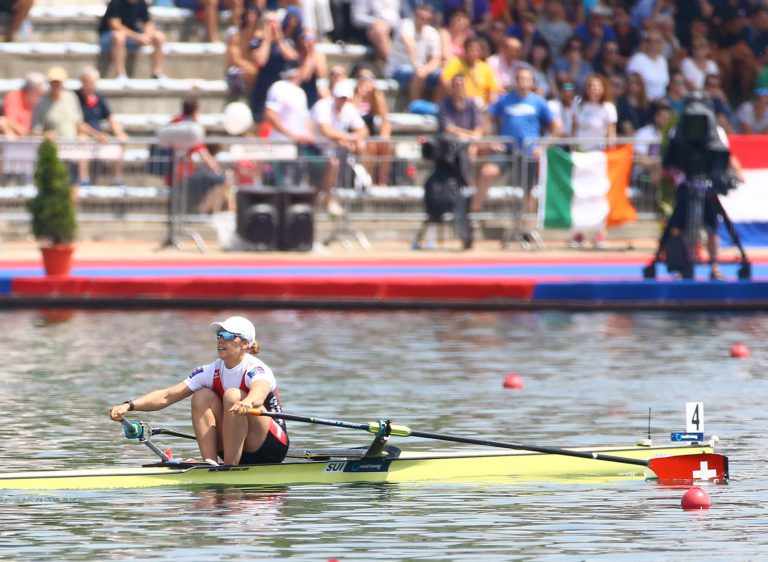
Photo Jeannine Gmelin, W1x winner in Belgrade, Serbia
Credit World Rowing
Ireland’s sculler Sanita Puspure will have also taken some confidence from this women’s singles final. With all three of last year’s medallists in the race, Puspure rowed through both the British world silver medallist Vicky Thornley, and Austrian world bronze medallist Magdalena Lobnig, to take silver behind Gmelin and seal Ireland’s best ever result in this event. Puspure has long-been just shy of podium places, could this be the year she steps on?
In the men’s single we saw the international debut of 21-year-old German Oliver Zeidler. The ex-swimmer took to rowing for the first time 18 months ago. For the newcomer, racing at this level, let alone coming away with the bronze medal so soon is impressive. With all the markings of a future German superstar, Row360 will be following Zeidler’s progress closely.
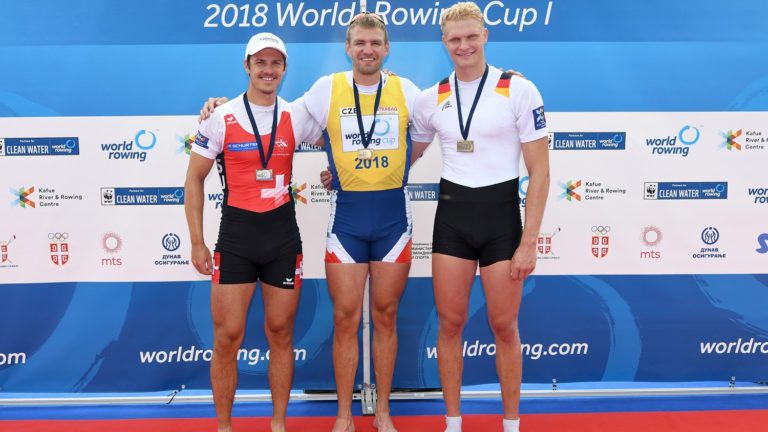
Photo M1x podium. Oliver Zeidler (right) impresses on international debut with bronze
Credit World Rowing
The top spot in the men’s eight was also unchanged from the 2017 world championships, with the German eight further cementing their position as the world’s fastest – for now. While the Germans will be pleased with the win, they looked far from unbeatable. British chief coach Jurgen Grobler has stacked his eight this season, and the brand new British line-up managed to push the seasoned German crew to within half a length.
The Germans have had no personnel changes from last year while the British eight, after only a few weeks together, are confident they have more speed to come. As for the 2017 world silver and bronze medal winning US and Italian eights, we still know nothing of their form. Mike Teti, who oversaw USA’s Athens gold and Beijing bronze in 2004 and 2008, returns to the US national team with high hopes resting on his shoulders, but his crew are yet to race. The Romanian men’s eight came out of the woodwork with a blistering first half in Sunday’s final and they too may have more speed to come.
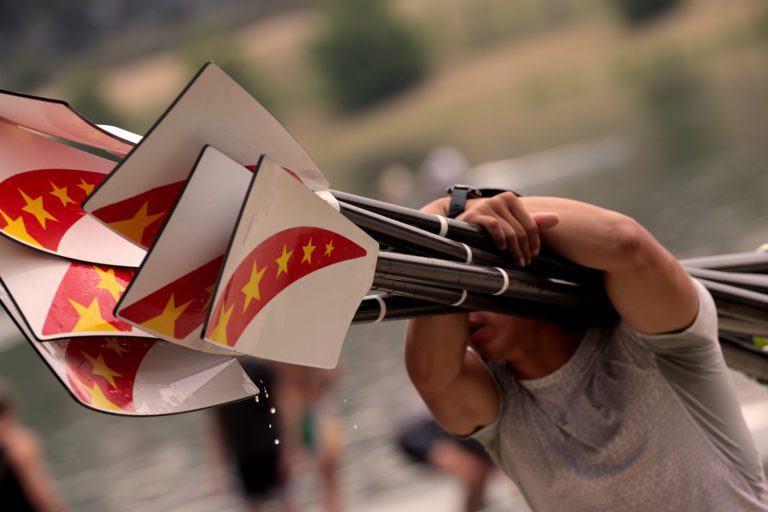
Photo Chinese rowing has set its sights high for the future
Credit Benedict Tufnell
As for the women’s eight, few conclusions can be drawn here. There was only four crews racing in Belgrade (Chinese eights made up two of the entries) and none of the 2017 world’s medallists. While China were clearly off the pace, this is very early days in what may well be a resurgence in Chinese rowing.
This world cup marked the start of a new phase in Sir Steve Redgrave’s career as he steps into his first team-management role as the performance director for China. Having set themselves a team target of achieving two rowing gold medals in Tokyo 2020, China’s results from this weekend only confirmed the enormity of the task Redgrave has ahead of him.
Elsewhere, the Sinkovic brothers won the pair looking increasingly confident in their new-found sweep event, albeit with the reigning world champs from Italy absent, and the GB heavyweight men’s quad showed that, when all fit and healthy, are the crew to beat.
Bring on world cup II.
World cup II will take place in Linz Ottensheim, Austria from June 21-24.
